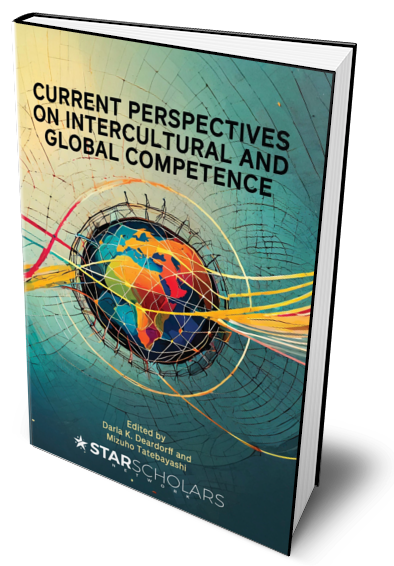Call for Book Proposals: Pathways to the College Presidency Book Series
Pathways to the College Presidency Book Series
Lead Editor: Dr Edward J. Valeau
Book Series Title: Pathways to the College Presidency: Leadership, Challenges, and Opportunities
This professional book series explores the multifaceted journey to becoming a college or university president. Each volume delves into the unique pathways, leadership challenges, and opportunities that aspiring presidents encounter, offering comprehensive insights from real-world experiences, academic research, and leadership theory. The series provides an essential roadmap for individuals aiming for the highest levels of educational leadership while focusing on skill development, personal growth, diversity, student access and success, and institutional transformation. Each book is designed for higher education professionals, sitting and aspiring presidents, and scholars of academic leadership.
Rationale for the Series:
Academic leadership is continually evolving Leadership in academia requires presidents to be nimble if they intend to lead people within the college through increasingly complex challenges. Existing literature on college presidents has focused mainly on specific demographics, such as women or minority leaders, or particular leadership traits (Wolverton et al., 2023; Melidona et al., 2023). This series expands on those themes by offering a broader, more comprehensive view of the to the presidency (Woollen, 2016). It synthesizes research on leadership development, equity, financial stewardship, and crisis management while addressing the need for a diversified, global perspective (Freeman & Kochan, 2012). By drawing on the experiences of current and former presidents, this series aims to fill a gap in the literature and serve as a vital resource for scholars and aspiring higher education leaders.
Send proposals/abstracts to
Series Editor
Dr. Edward J. Valeau
CEO Emeritus, Hartnell Community College District, Salinas, California
Email: valeauejames@yahoo.com
Resources for Authors/Editors:
Suggested Book Titles in the Series:
- Navigating the Academic Ladder: Career Pathways to the Presidency
Description: This volume examines the traditional and non-traditional routes to the college presidency, focusing on the academic and administrative steps leaders take to ascend to the highest office in higher education (Kuharski, 2009; Sanchez, 2009). Drawing on case studies and interviews, it highlights the diverse backgrounds of modern presidents and the critical milestones along the way (Freeman & Kochan, 2012). - Leading Through Change: The Evolving Role of College Presidents
Description: This book explores how college presidents navigate shifting landscapes in higher education, from funding crises to technological advances (Eddy, 2005; Birnbaum, 1990). It emphasizes leadership adaptability and the need for strategic vision, addressing how presidents can lead effectively in times of uncertainty and transformation (Woollen, 2016). - Diversity in Leadership: Experiences of Minority and Women Presidents
Description: Focusing on the stories of women and minority presidents, this volume highlights the unique challenges and contributions of underrepresented groups in higher education leadership (Waring, 2003; Whitaker, 2021). It includes personal narratives, research findings, and strategic advice on overcoming systemic barriers to leadership (Snowden, 2019; Plinske & Packard, 2010). - Institutional Stewardship: College Presidents and Financial Sustainability
Description: This book focuses on the financial responsibilities of college presidents, including fundraising, endowment management, and financial planning (Schmitz, 2008; Burmicky et al., 2024). It provides practical insights on how presidents can ensure the financial health of their institutions while balancing academic and mission-driven priorities (Proctor, 2024). - Crises Management and Leadership in Higher Education
Description: Examining how presidents respond to crises—whether financial, social, or academic—this book outlines key strategies for effective crisis management (Speck, 2024). It emphasizes the importance of communication, decision-making under pressure, and the role of ethical leadership during challenging times (McNaughtan & Lujan, 2024). - Global Perspectives on University Leadership: The International Experience
Description: This volume explores the experiences of college presidents in a global context, offering a comparative look at leadership practices in higher education institutions worldwide (Ruan et al., 2024; Yu et al., 2024). It addresses the impact of globalization on university governance, student mobility, and international partnerships (Currie, 2024).
References:
Birnbaum, R. (1990). How college presidents assess their effectiveness. The Leadership Quarterly.
Burmicky, J., Sáenz, V. B., & Ryu, W. (2024). Exploring how community college presidents make human resources decisions for financial aid departments in an era of uncertainty. Journal of Education Human.
Currie, D. J. H. (2024). The pathfinding Asian woman president: Three lessons for leading an inclusive college for the 21st century. Career Journeys of Diverse Leaders in Higher Education.
Eddy, P. L. (2005). Framing the role of leader: How community college presidents construct their leadership. Community College Journal of Research and Practice.
Freeman, S., Jr., & Kochan, F. K. (2012). Academic pathways to university leadership: Presidents' descriptions of their doctoral education. International Journal of Doctoral Studies.
Kuharski, R. A. (2009). Career pathways and experiences of women community college presidents. ProQuest.
McNaughtan, J., & Lujan, J. (2024). A moral, ethical, and fiduciary obligation to serve: Perceptions of the role of presidents at Hispanic-serving community colleges. Community College Journal of Research and Practice.
Melidona, D., Cassell, A., & Chessman, H. (2023). The American college president: 2023 edition. SSRN.
Proctor, A. (2024). Blazing trails in the community college sector: Harper College presidents' leadership strategies. Journal of Effective Leadership in Community Colleges.
Ruan, J., Cai, Y., & Stensaker, B. (2024). University managers or institutional leaders? An exploration of top-level leadership in Chinese universities. Higher Education.
Sanchez, L. (2009). Career pathways and demographic profiles of university presidents in the U.S.: 2000–2008. ProQuest.
Schmitz, G. R. (2008). Leadership preparation and career pathways of community college presidents. ProQuest.
Snowden, T. W. (2019). Career pathways and experiences of African American/Black presidents at historically white institutions. University of Georgia.
Speck, M. M. (2024). The experiences of women college presidents while leading through an institutional crisis: The perceived successes and challenges. West Virginia University.
Waring, A. L. (2003). African-American female college presidents: Self-conceptions of leadership. Journal of Leadership & Organizational Studies.
Whitaker, L. R. (2021). Gender impacts in the president career pathway. ProQuest.
Wolverton, M., Bower, B. L., & Hyle, A. E. (2023). Women at the top: What women university and college presidents say about effective leadership. ProQuest.
Woollen, S. (2016). The road less traveled: Career trajectories of six women presidents in higher education. Advancing Women in Leadership Journal.
Yu, N., Dong, Y., de Jong, M., & Yue, J. (2024). How do new university presidents affect research performance? Measuring the impact of previous career paths in China. Research Policy.




